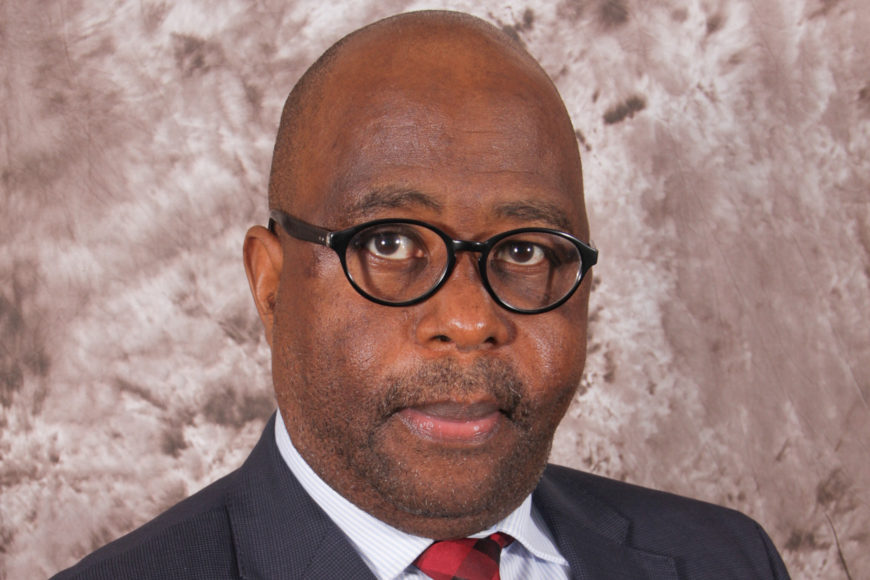The Centre for Excellence in Learning and Teaching (CELT) at the Durban University of Technology recently hosted a two-day virtual Learning and Teaching Symposium in memory of the late CELT Director, Professor Thengani Ngwenya.
The symposium was held to celebrate Prof Ngwenya’s legacy and to honour the work that he was involved in and promoted at the University. These were reflected in the symposium theme: Curriculum Transformation, Signature Pedagogies, Innovative Teaching and Learning.
Prof Ngwenya was described as a “Visionary leader, an outstanding scholar and a gentleman”. He was an active scholar who contributed extensively to higher education scholarship and practices. His research and practices explicitly prioritised student success and therefore advanced curriculum design and pedagogical practices that provided opportunity to diverse student population to achieve equity of outcomes.
The Programme Directors were CELT’s Ms Nalini Chitanand and Dr Shoba Rathilal. Day 1 of the symposium comprised of three sessions. Session1 was chaired by Ms Nalini Chitanand and Dr Rosaline Govender. Session 2 was chaired by: Dr Shoba Rathilal and Ms Roshnee Sunder, meanwhile session 3 was chaired by Ms Shubnam Rambharos and Mr Simon Ndlovu.
“As a collective in the Centre for Excellence in Learning and Teaching, we have agreed to honour our leader through this symposium. We would like to thank the University management for accepting our request to do this. We also wanted to thank the family members who agreed and who are also within our midst. Indeed, we are indebted to the good work that Professor Thengani Ngwenya did. This symposium is focusing on Curriculum Transformation, Signature Pedagogies, Innovative Teaching and Learning. We proceed to pay special attention to the challenges and opportunities,” said CELT Director: Prof Livingstone Makondo, in his welcome remarks.
He further stated that this was the focus of Prof Ngwenya and they felt the best way to celebrate his legacy was to focus on what he invested in during his lifetime.
Delivering the message of support was the Deputy Vice-Chancellor: Teaching and Learning, Prof Nokuthula Sibiya. She mentioned that the challenges facing universities in recent years have escalated, saying the massive scale of COVID-19 outbreak and its sheer unpredictability, together with a high degree of uncertainty, has given rise to a number of challenges in higher education institutions which compromise teaching, learning, and assessment.
“This crisis has undoubtedly presented an opportunity for universities to suggest numerous innovative ways of curriculum, conceptualisation, interpretation, and implementation. The DUT Centre for Excellence in Learning and Teaching provides technical support to staff and students, as well as professional development in online teaching, learning, and assessment pedagogies. These staff and student support initiatives were initiated by the former CELT Director, the late Professor Thengamehlo Harold Ngwenya. He was an active scholar who contributed immensely to higher education scholarship and practices that focused on transformation. As a scholar his work has impacted immensely on the sector,” noted Prof Sibiya.
The fist keynote speaker was Prof Ahmed Bawa, CEO of Universities South Africa (USAf) and former DUT Vice-Chancellor and Principal. In his presentation titled Recalibrating Higher Education: putting the fun back into teaching and learning. He stated that COVID-19 was not the only big disruptor and there were a series of disruptions facing South African higher education institutions and highlighted that universities are in the midst of numerous challenges that are simultaneously local and global and even epoch-shifting. He raised the important questions about whether universities are complicit in the state of our society. While acknowledging that the challenges exist Prof Bawa promoted teaching with urgency to address some of the critical questions impacting universities, namely the social ownership of universities, the knowledge project, the imperatives of the new technology moment, university spaces as anti-racist, anti-sexist and free of violence as spaces of freedom for debate, dissent, scepticism. Speaking about creating conditions of high-level learning, Prof Bawa said knowing your students, optimising the use of technology for teaching and learning, optimising the conditions for teaching and learning and defending and strengthening academic freedom is key. He emphasised that putting the fun back into teaching will require creating the conditions for high level teaching.
Reciting powerful, thought-provoking poems was Ms Marie Pete and Dr Serathi Molokwane.
Session 2 included a Student Panel discussion titled, Looking beyond COVID-19: students as collaborators in Re-imagining the teaching and learning practice. The panellists were DUT’s Dr Mzwandile Khumalo and Mr Simon Ndlovu and Student team: Ms Philile Ngcobo, Ms Lerato Mokoena, Ms Keiron Boosi, Ms Lethabo Nkwana, Ms Hlengiwe Biyela, Ms Nqobile Madlala, Mr Nonjabulo Shangase.
Another robust discussion was based on the university’s Siyaphumelela: Cultivating Partnerships for Student Success. The panellists were DUT’s Dr Naseem Haniff, Ms Nalini Chitanand, Dr Koo Parker.
The last session for Day 1 was the second keynote address by Prof Laura Rendon, Professor Emerita, University of Texas-San Antonio. Her presentation was titled, Designing a Culturally-Validating Sentipensante (Sensing/Thinking) Pedagogy. In her presentation Prof Rendon provided an overview of contemporary pedagogies that can foster inclusion, equity, justice and well-being. She discussed her Sentipensante (Sensing/Thinking) Pedagogy to address the rhythmic balance between intellectual, social, emotional and inner-life skill development. During her presentation, Prof Rendón shared exemplars through videos of staff who foster deep learning using art and photography, guided imagery, audio narratives and music.
Dr Jabulisile Ngwenya, the spouse of Prof Thengani Ngwenya, expressed her gratitude to the DUT family and all the wonderful speakers who celebrated Prof Ngwenya’s legacy as an academic, outstanding scholar and inspirational individual.
“Our hearts, as a family, are touched to know that his impact has continued to contribute to the knowledge building of the DUT community,” she said.
Pictured: The late CELT Director, Professor Thengani Ngwenya.
Simangele Zuma

